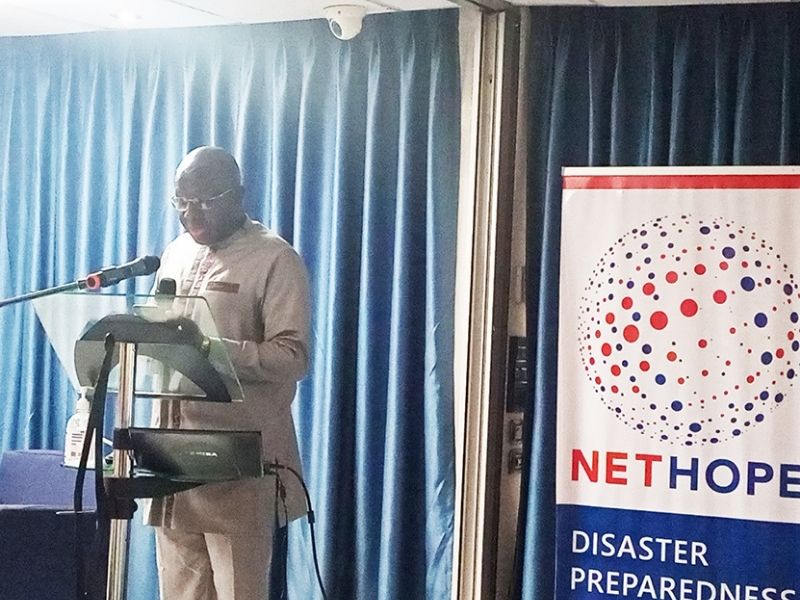
In order to ensure prompt and efficient response to emergencies, stakeholders in the telecommunication space have held a day’s workshop to jaw-jaw and come up with solutions.
The program, which was held in Accra last Friday, was put together by the Internet Society Foundation (ISOC) and NETHOPE.
Organisers of the program noted that technology plays a very vital role in emergencies. They indicated that to enable more impactful and humanitarian response, one has to ensure that there is internet connectivity for effective communication hence the bringing together of these individuals who were mostly the Information Technology (IT) experts in their respective organisations to proffer workable solutions.
Some of the organisations who participated in the program were the National Communications Authority (NCA), National Information Technology Agency (NITA), United Nations Food and Agricultural Organisation, World Food Porgram, Ghana Red Cross, World Vision International, National Disaster Management Organisation and SES Networks.
Addressing the gathering, Dr Osei Yeboah-Boateng, from the NCA, expressed his delight for being part of the workshop because the NCA, as regulator of the telecommunication sector in Ghana, plays a key role when it comes to emergencies.
He exemplified the important role technology plays in emergencies using the Covid-19 pandemic, which struck the world including Ghana in the year 2020.
Dr Yeboah-Boateng indicated that the NCA in order to protect Ghanaian citizens used technology to arrange security passes for telecommunication employees to enable them work during the pandemic.
Again, Dr Yeboah-Boateng noted that the NCA continually monitored the various networks to ensure that they were providing efficient services despite the pandemic.
He said ICT was also used to promptly brief and communicate with the citizens on issues of concern and, therefore, charged other participants not to downplay the important role technology plays in emergencies.
On his part, Prof Nii Quaynor, Chairman of ISOC, Ghana, noted that the needs of emergency situations far exceed normal times and proposed that there should be in existence, a framework for the coordination of emergencies.
According to him, knowing what assets are in place, their capabilities and their roles would enable one to respond to emergencies quickly and safely.
Giving insight as to how his organisation uses technology to handle emergencies, Mr Patrick Enyan, from the World Food Program noted that during emergencies, the IT teams in his organisation are deployed to undertake initial scoping of the affected area in order to ascertain the extent of the disaster.
He noted that the team then collaborates with stakeholders in order to collate information on how best the affected people can be helped.
Richard Okyere Fosu, the representative from NITA noted that in order to respond efficiently to the needs of citizens during emergencies, the government is developing an App known as the Citizen App.
According to Mr Fosu, the App will aid in the dissemination of information by way of targeted broadcast. He said by targeting the broadcast, affected areas and individuals will be able to know where and how they can get relief.
Dagbjartur Brynjarsson from NETHOPE, one of the organisers of the program, indicated how excited he was about the workshop because of its intended impact.
He noted that his organisation and ISOC will continue to collaborate with NGOS, private sector and government organisations to train more people in responding to emergencies, in order to build a strong Ghana.








